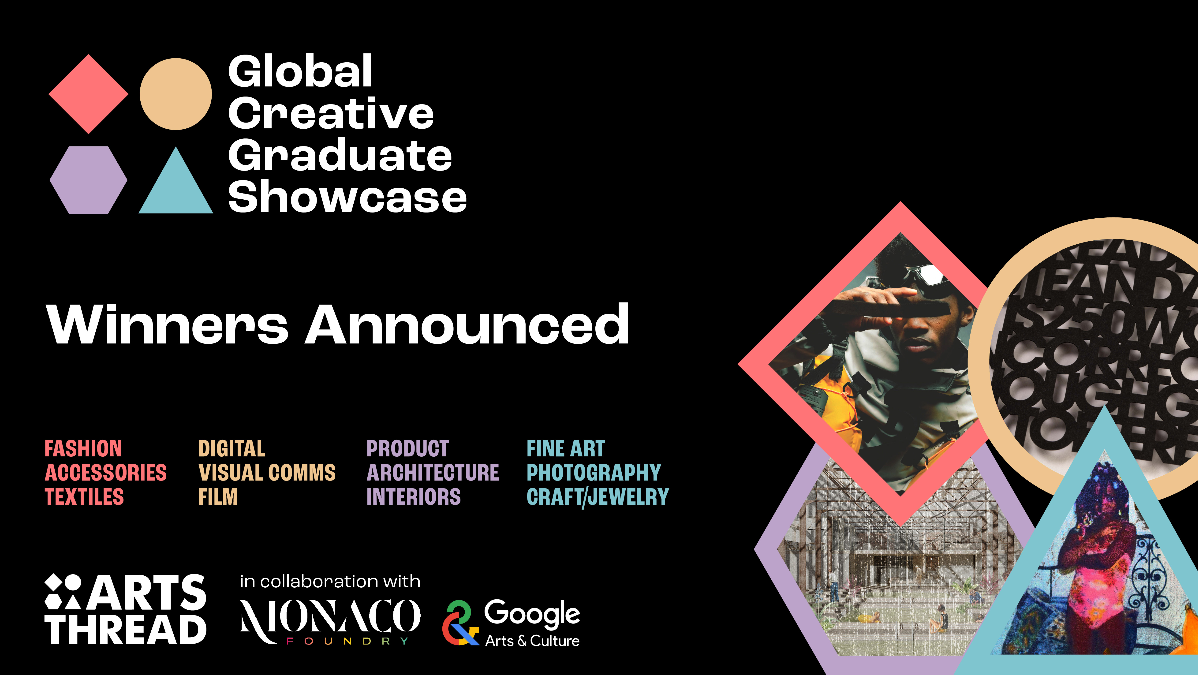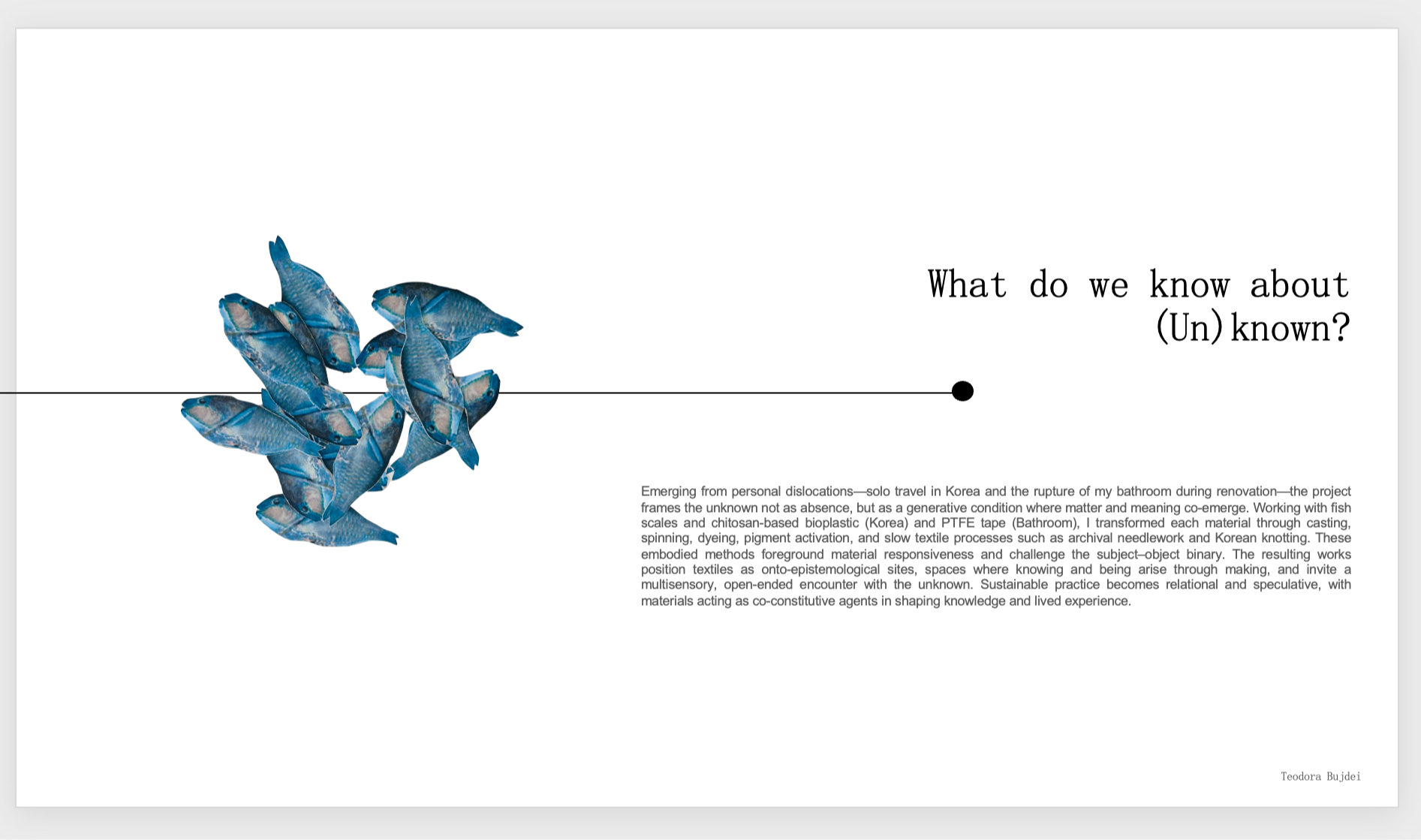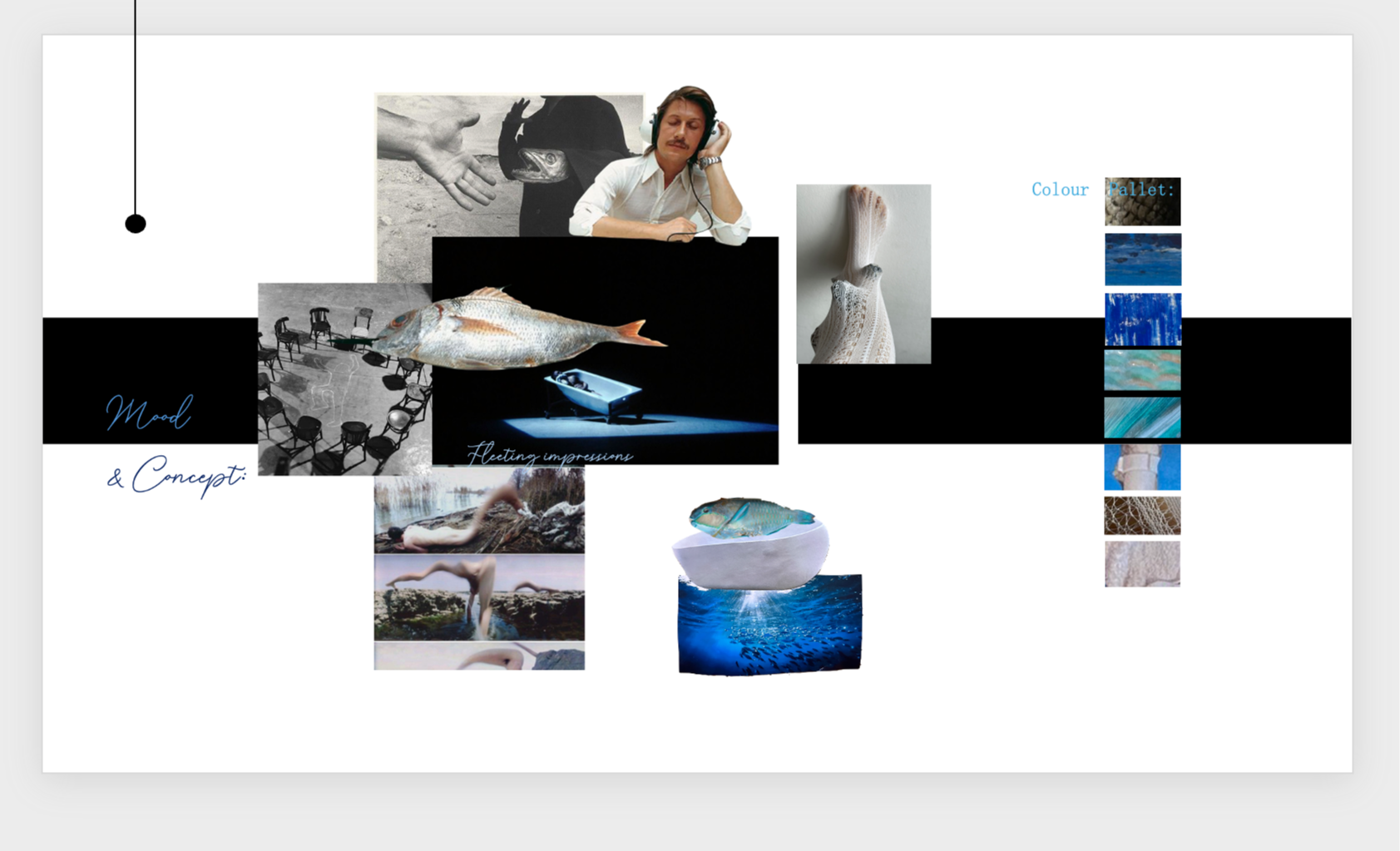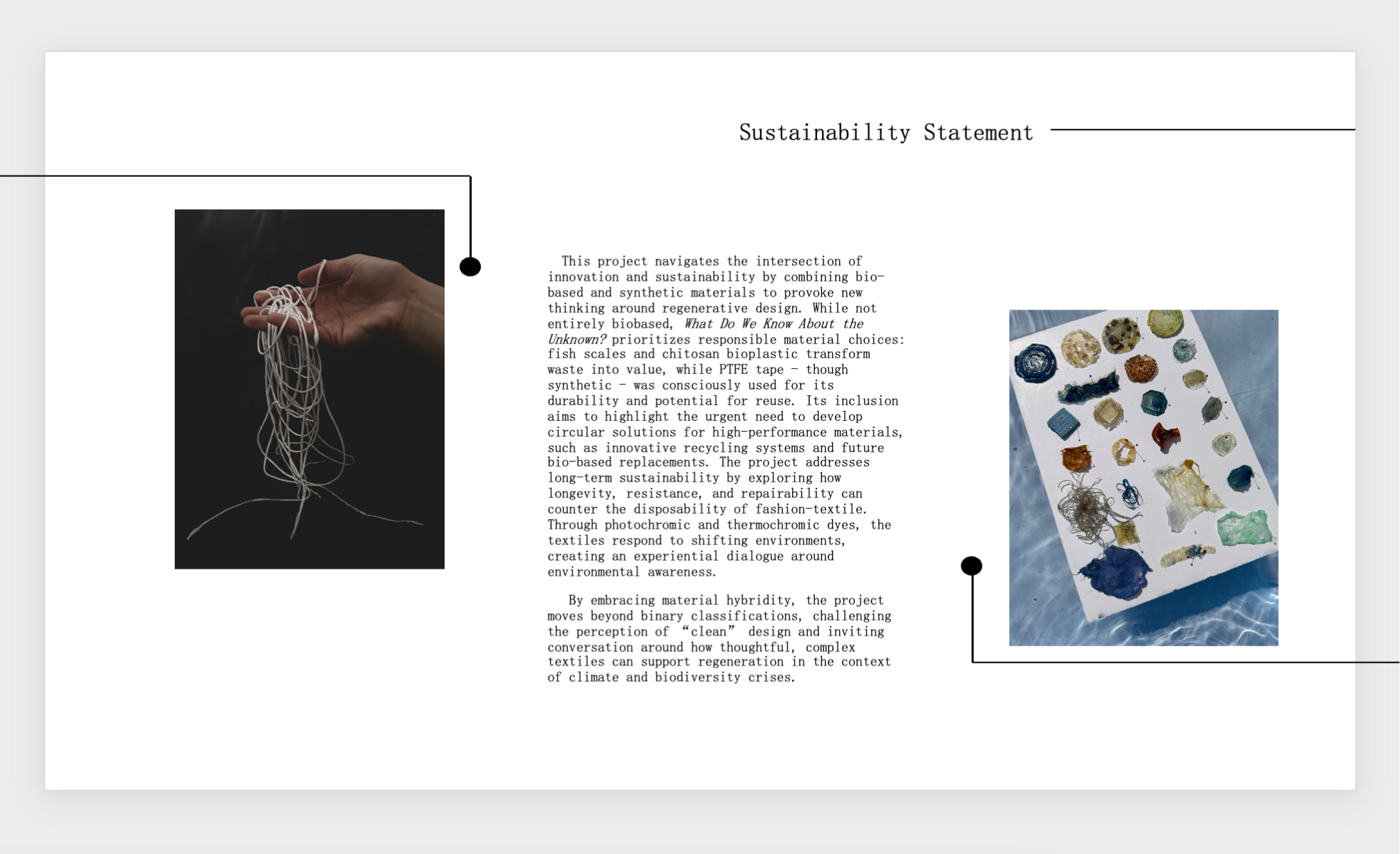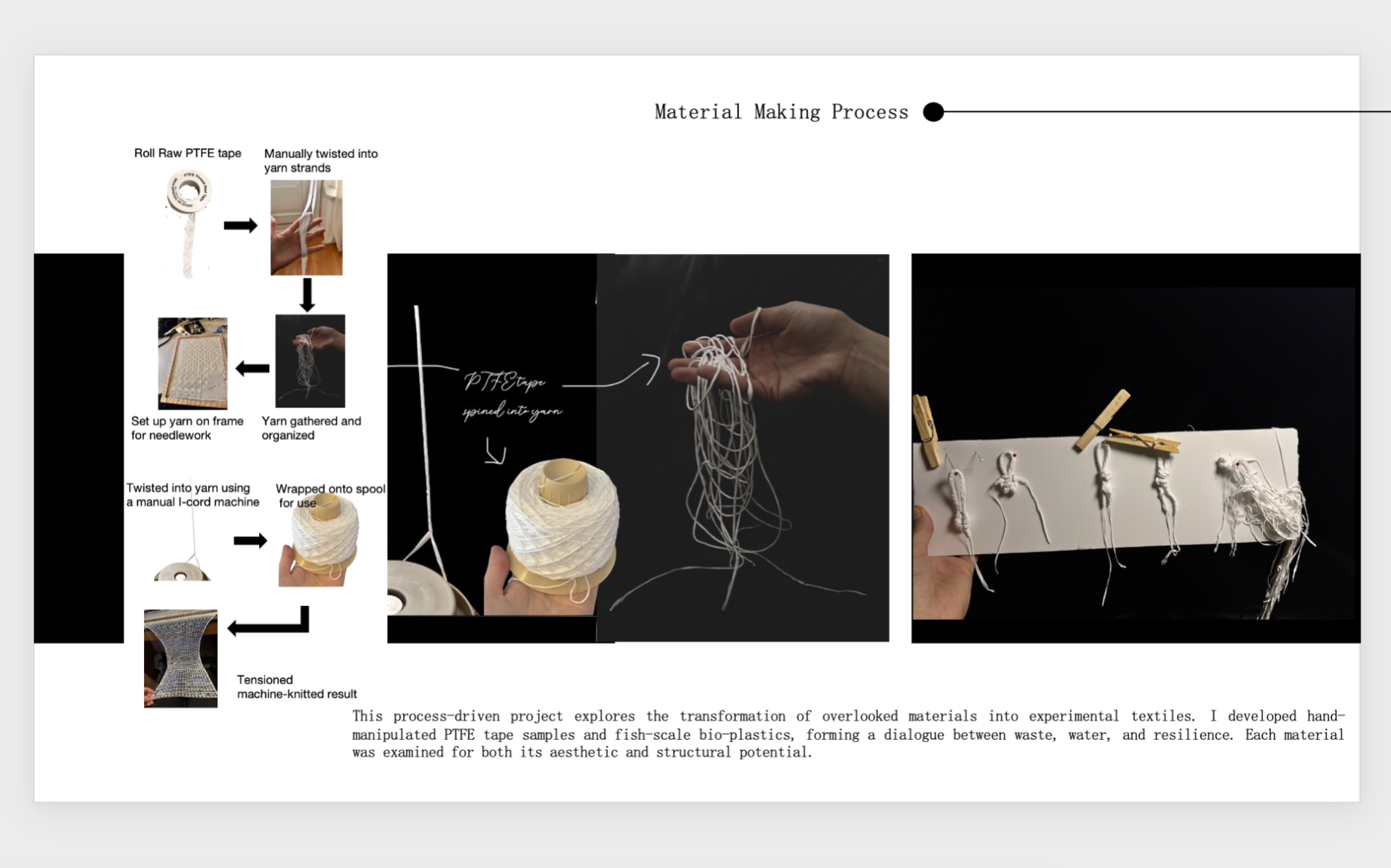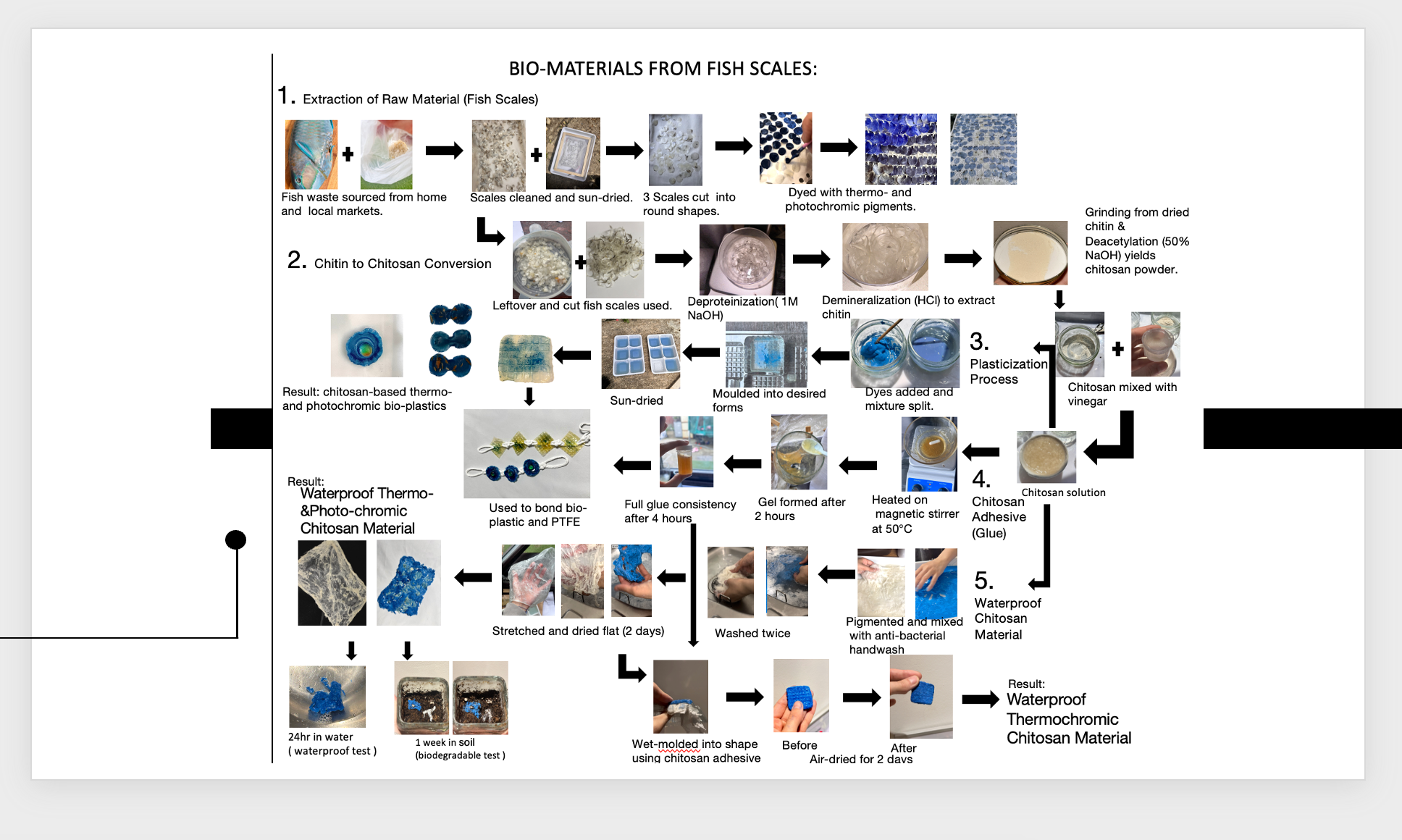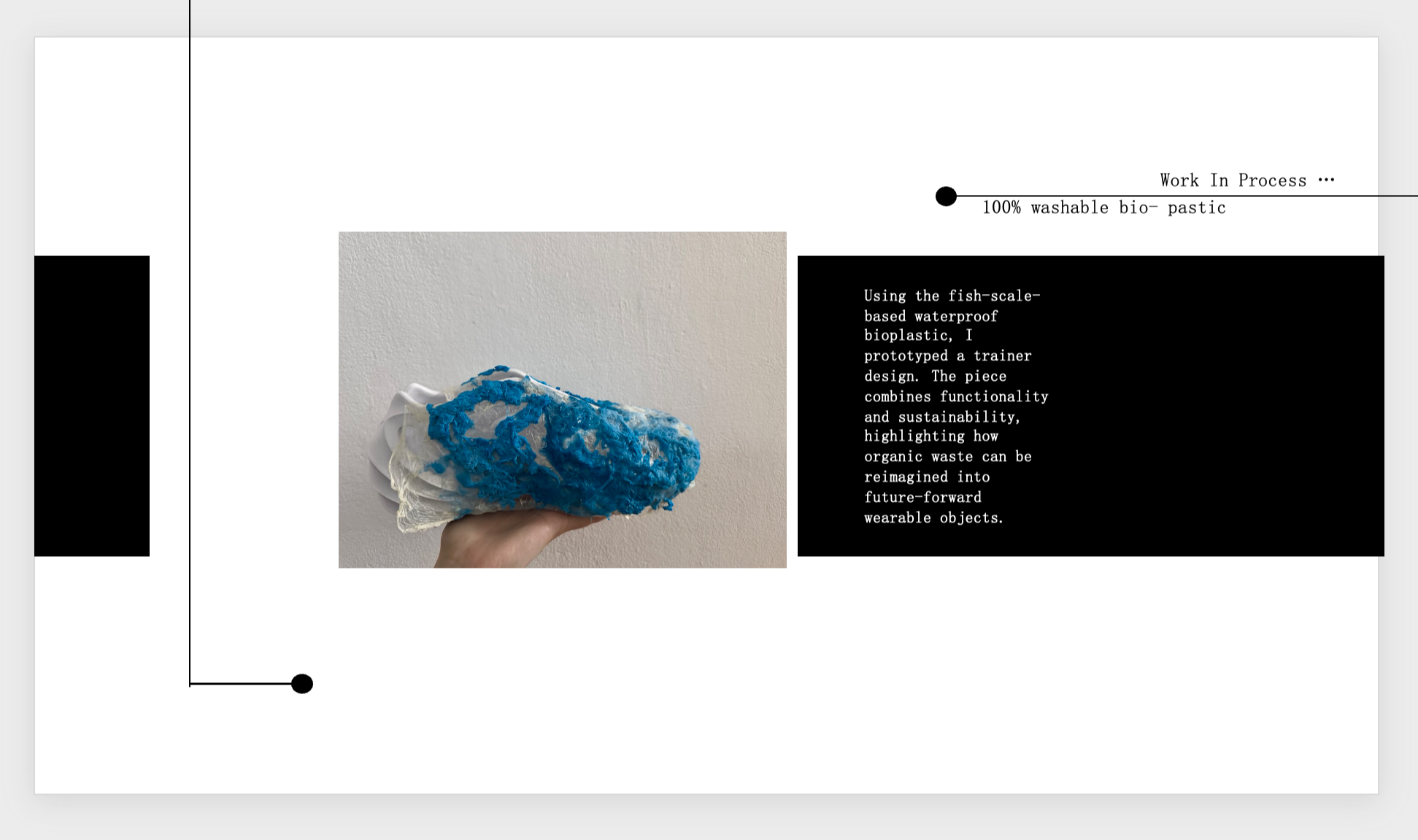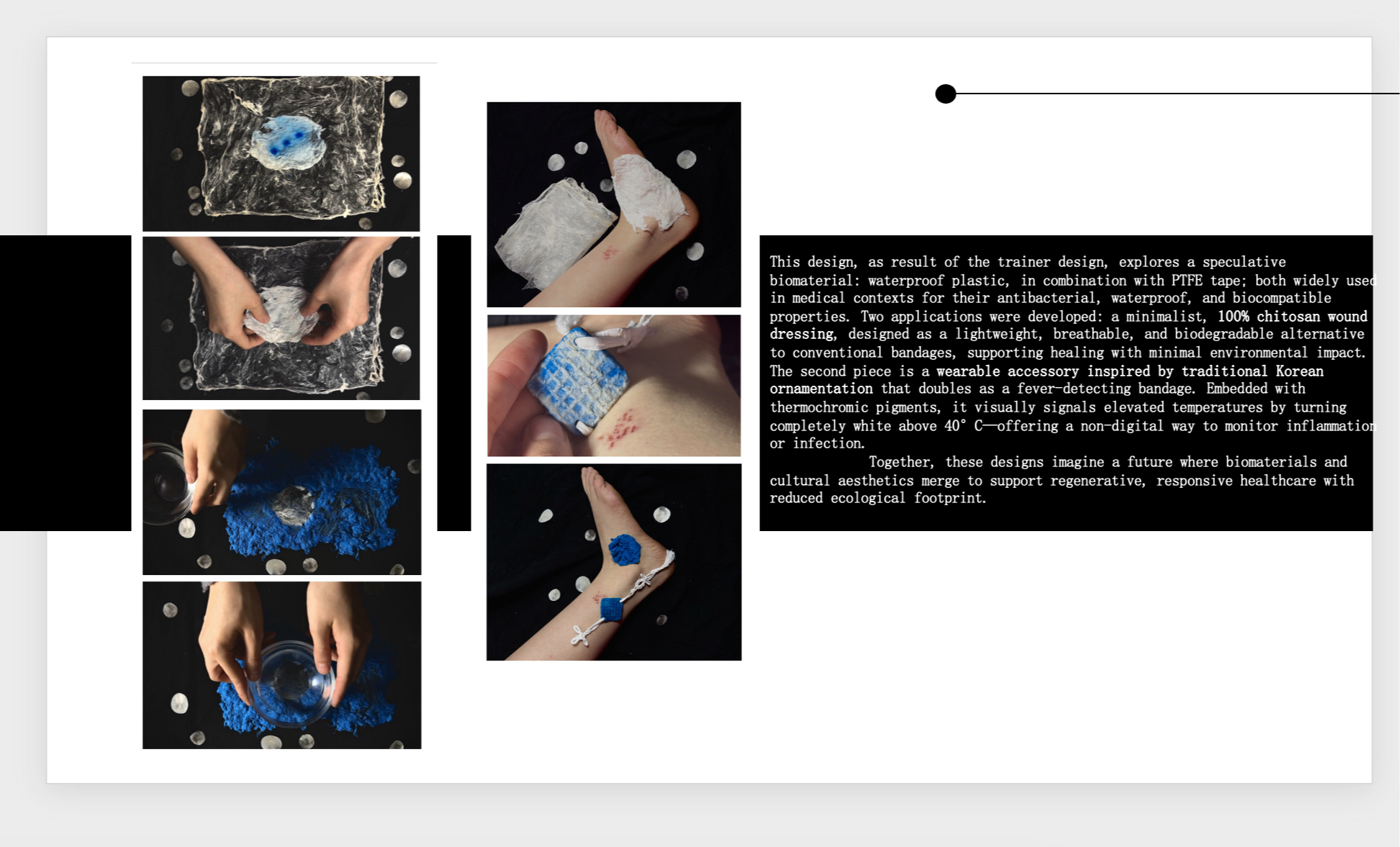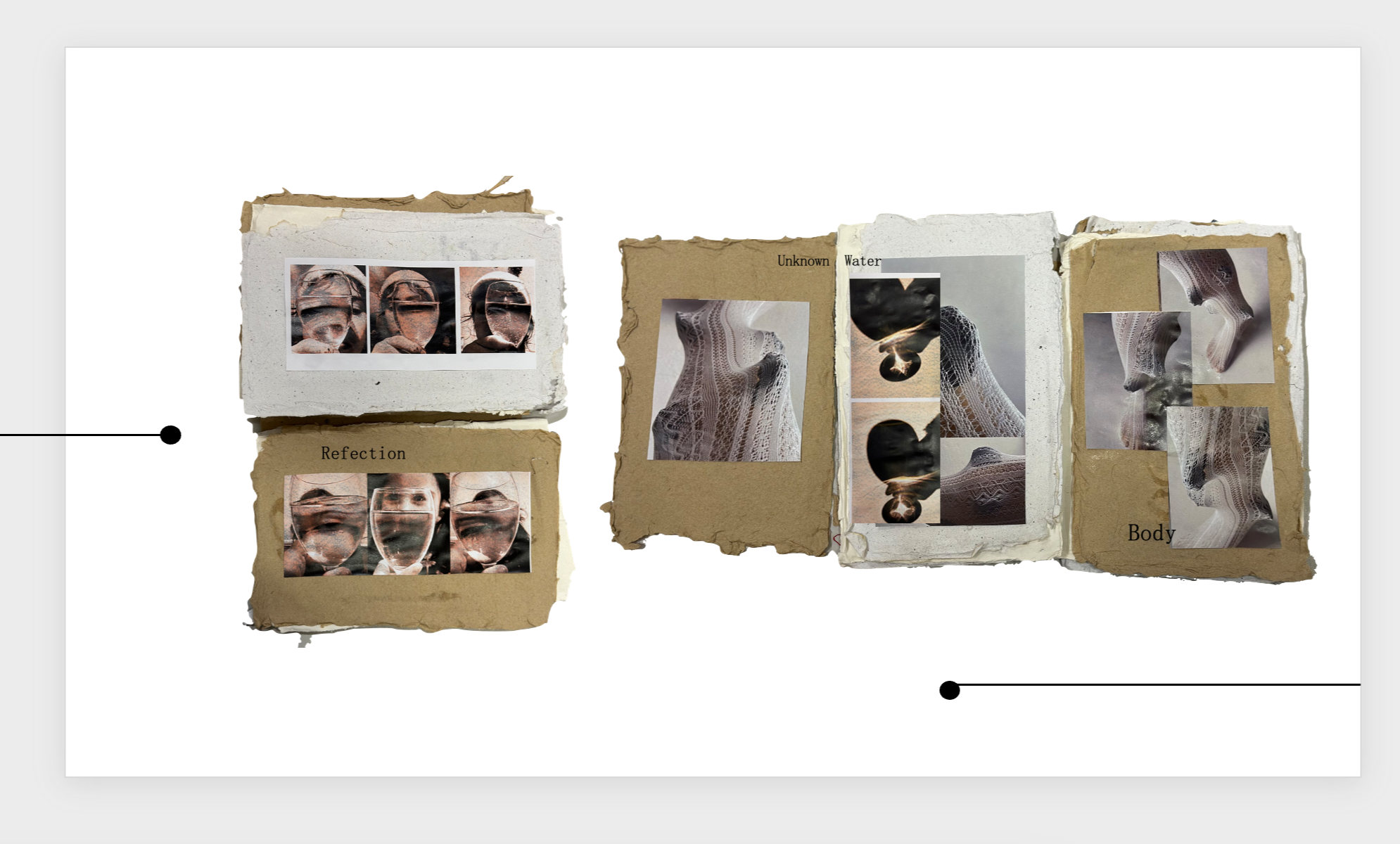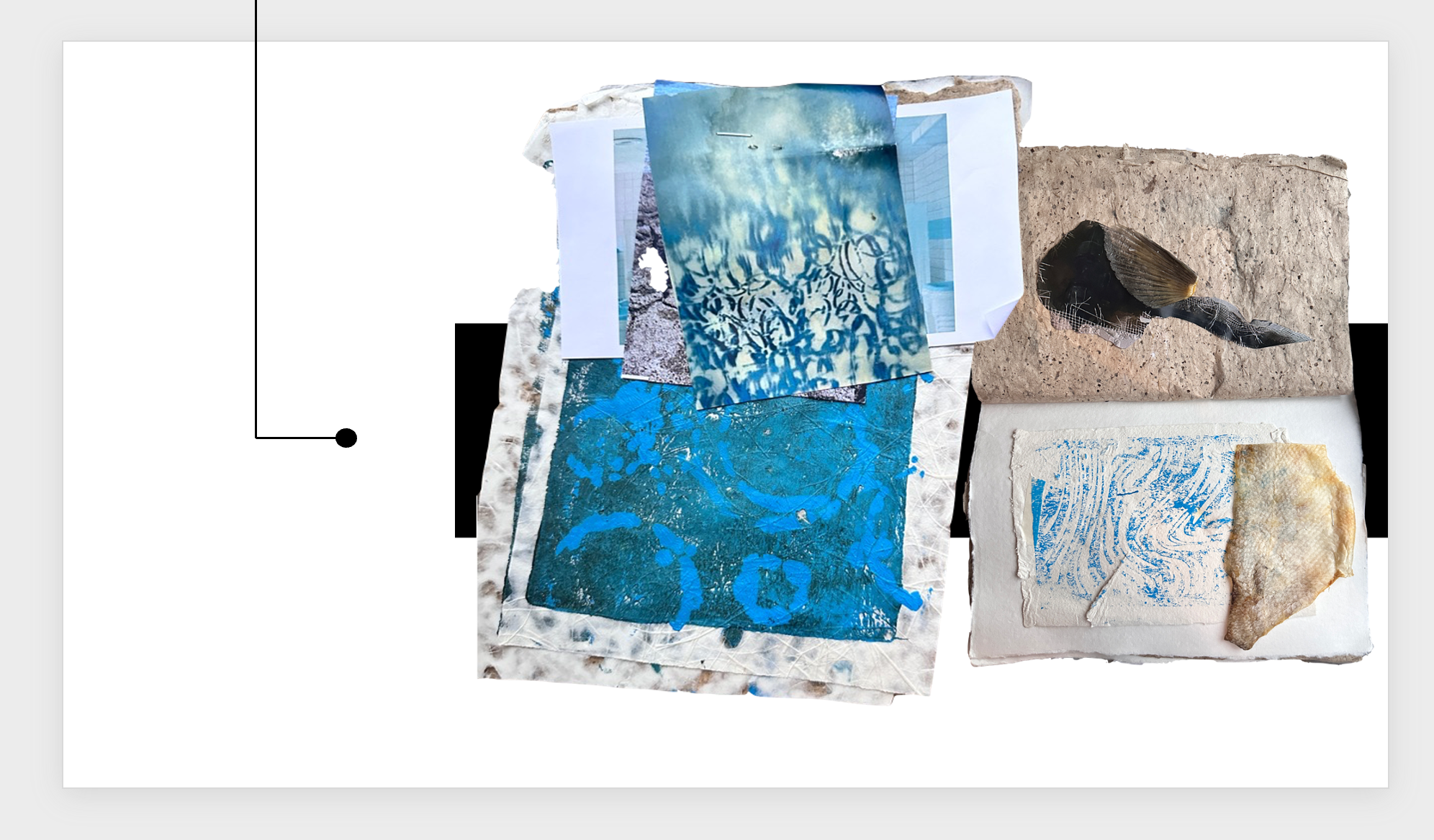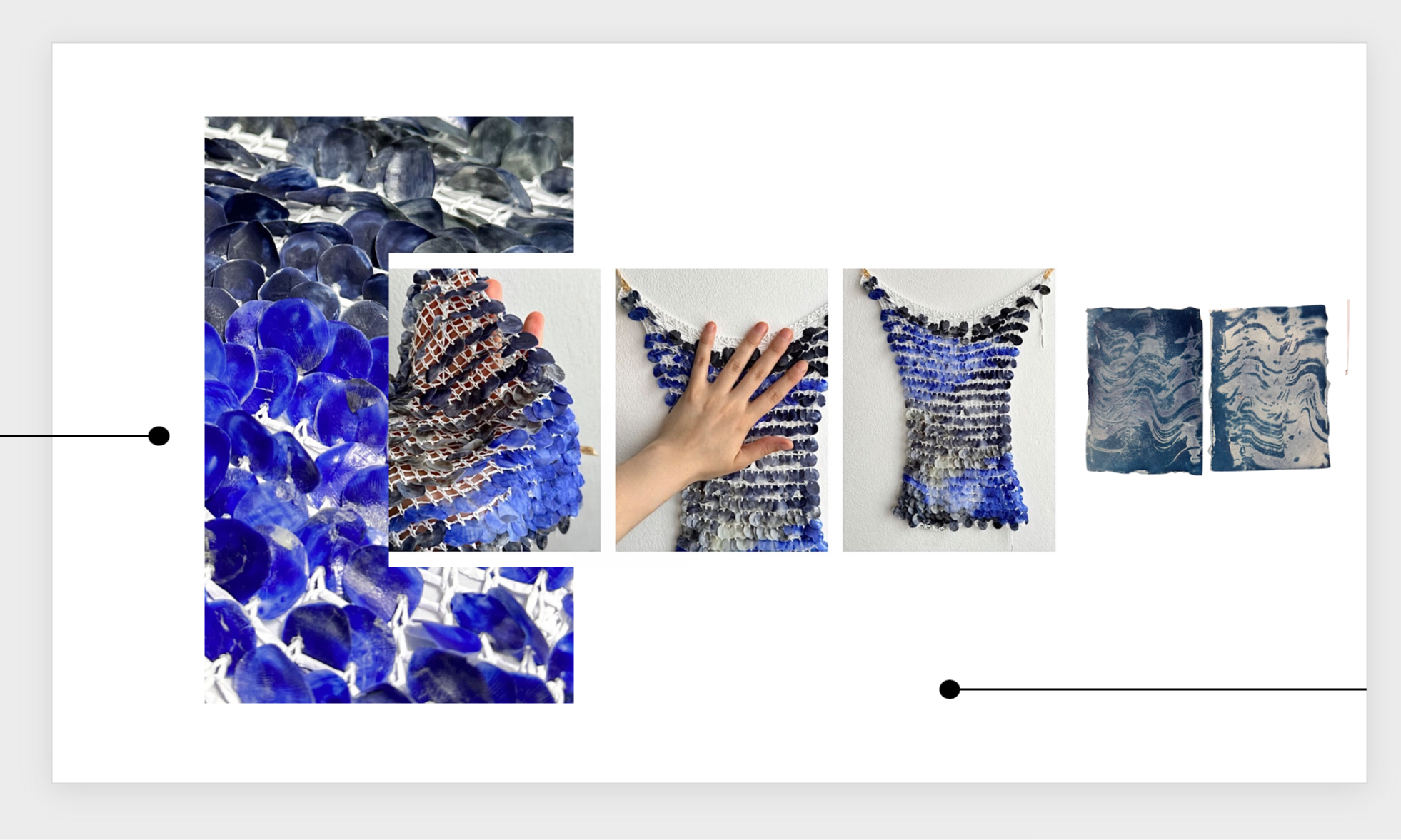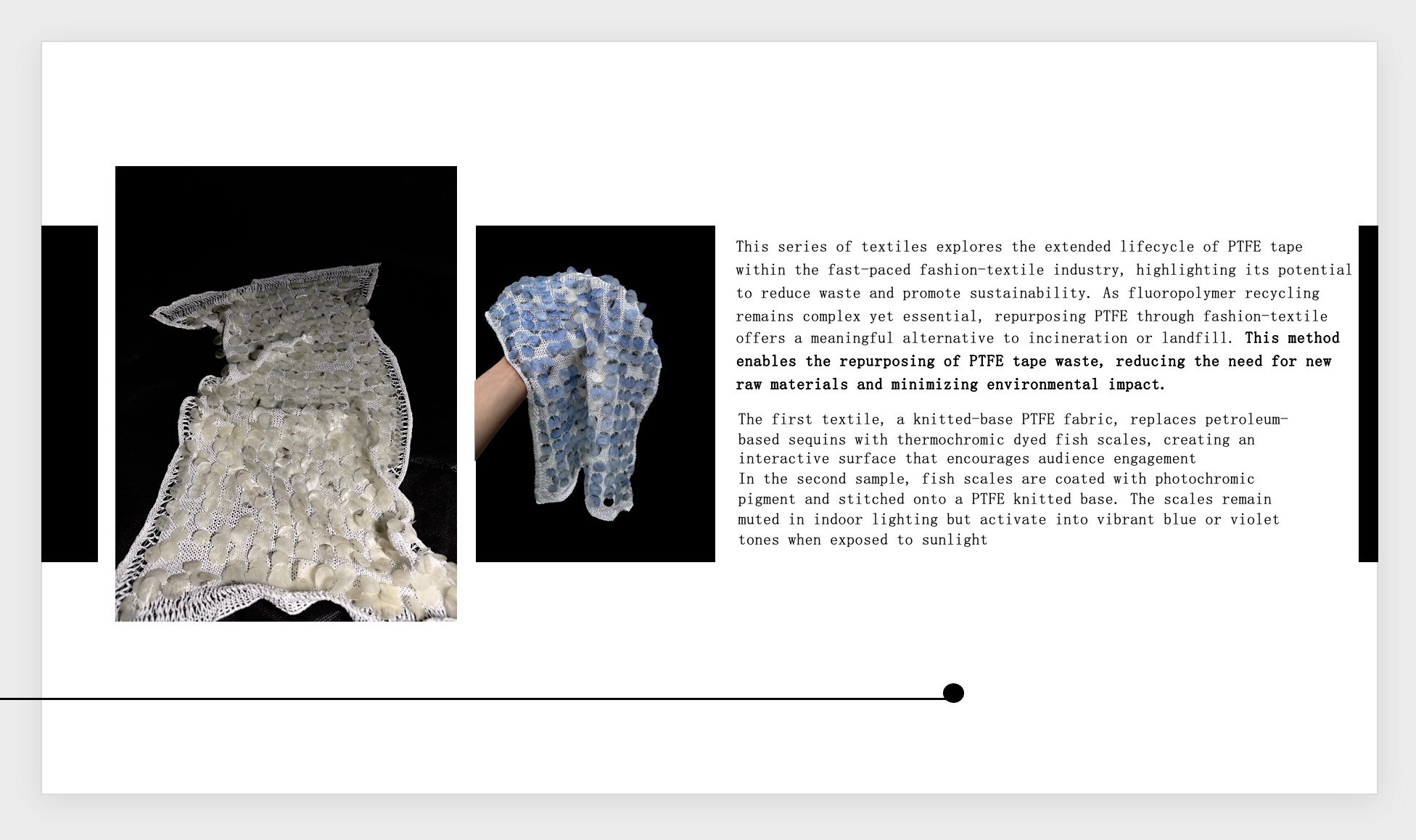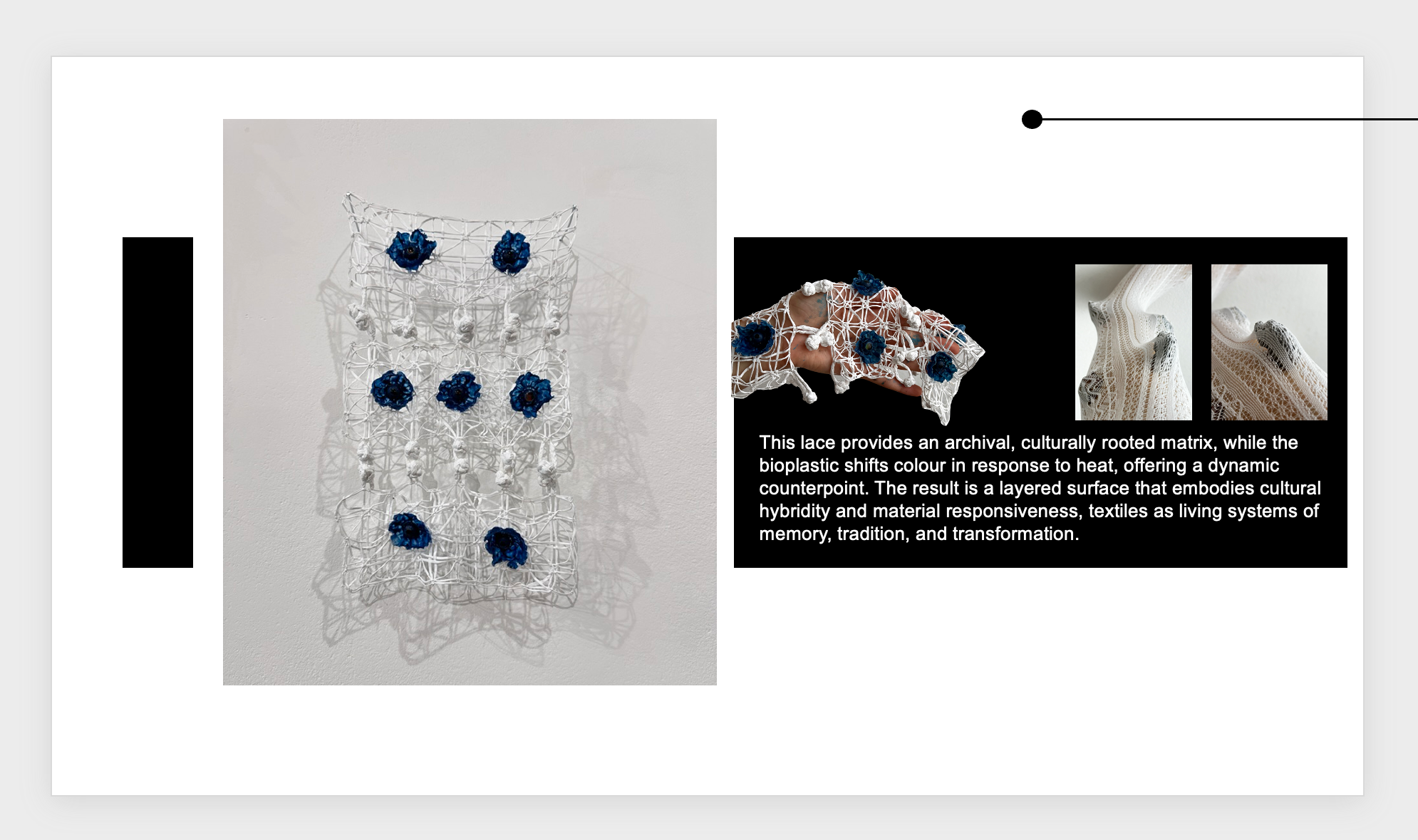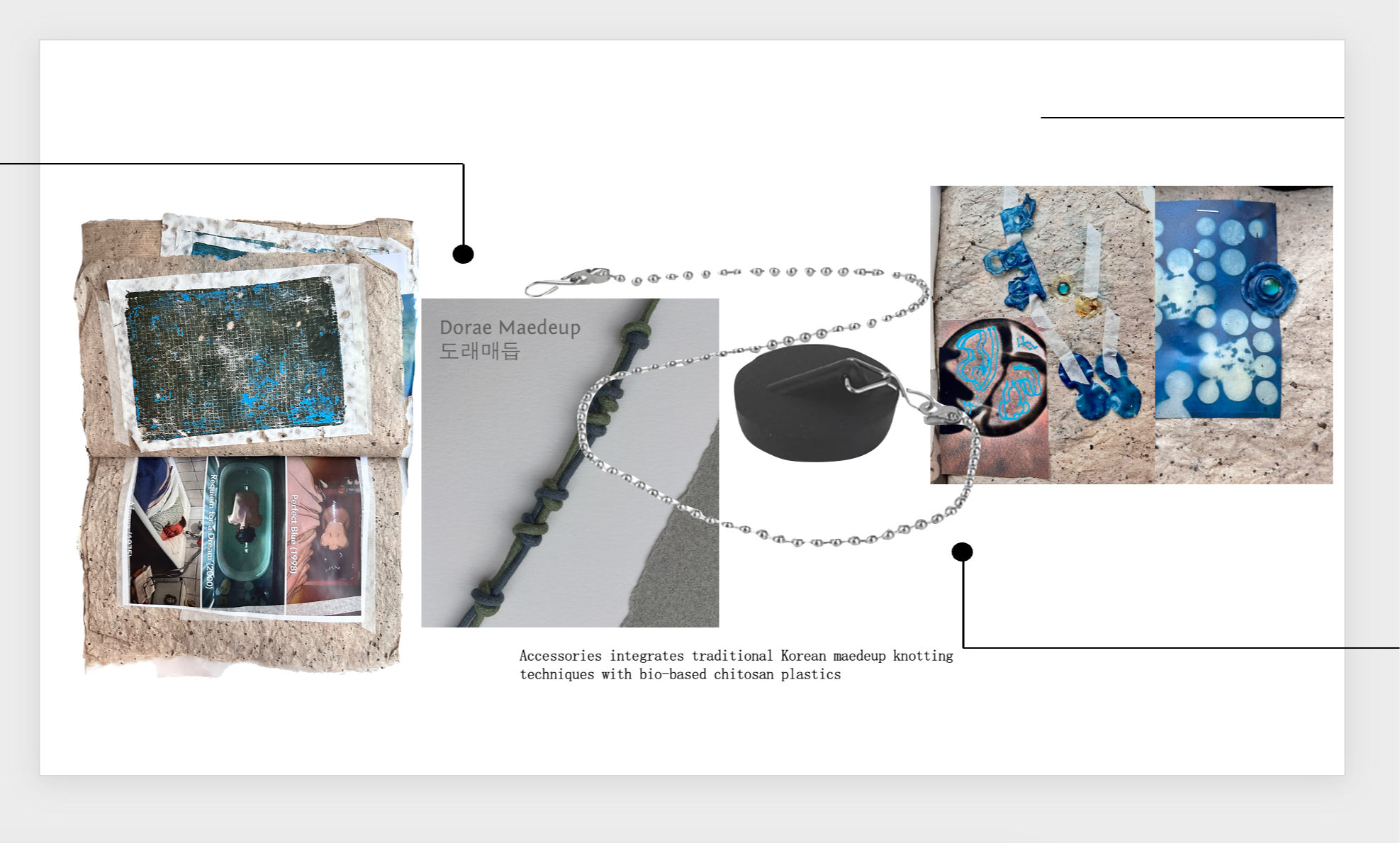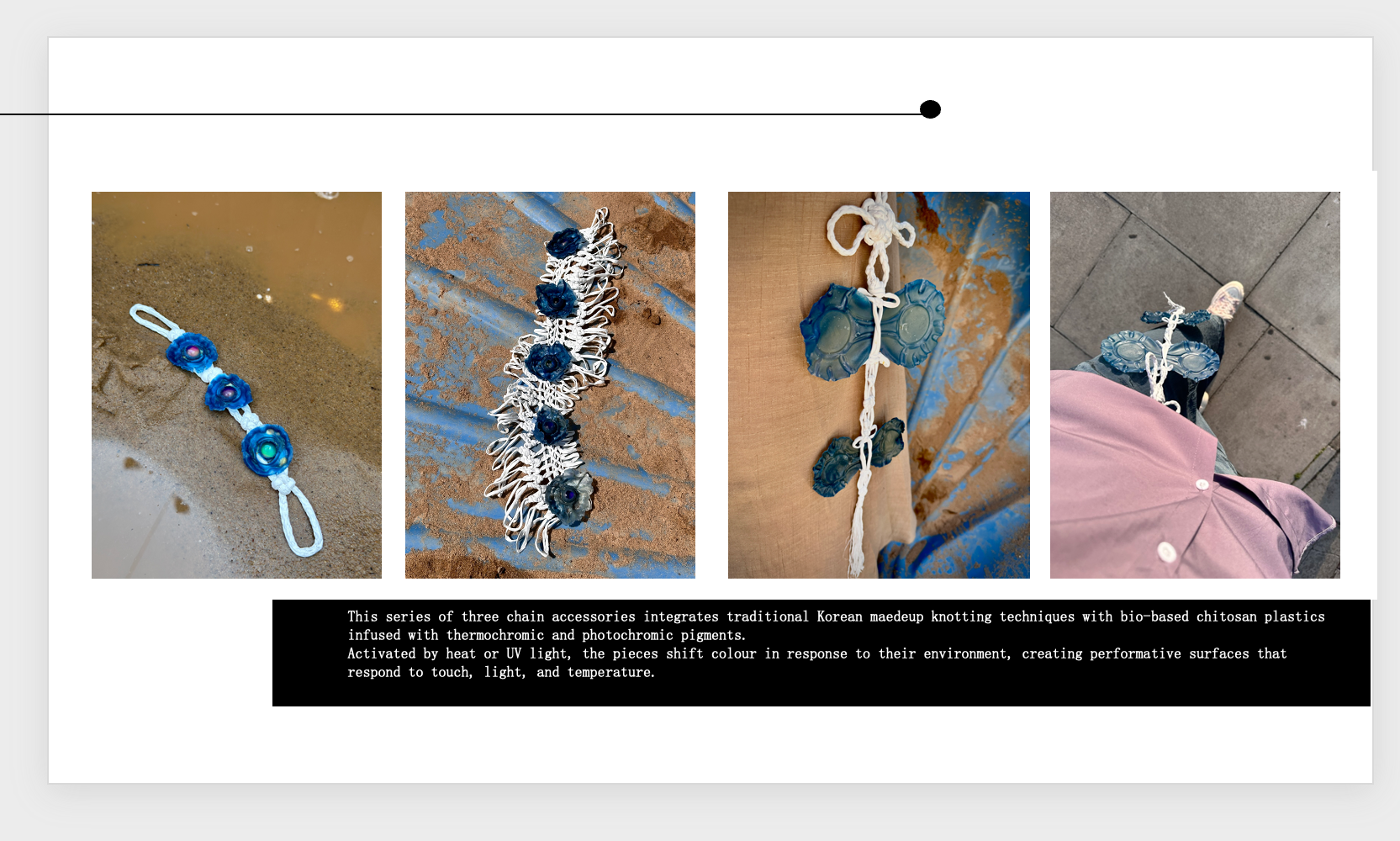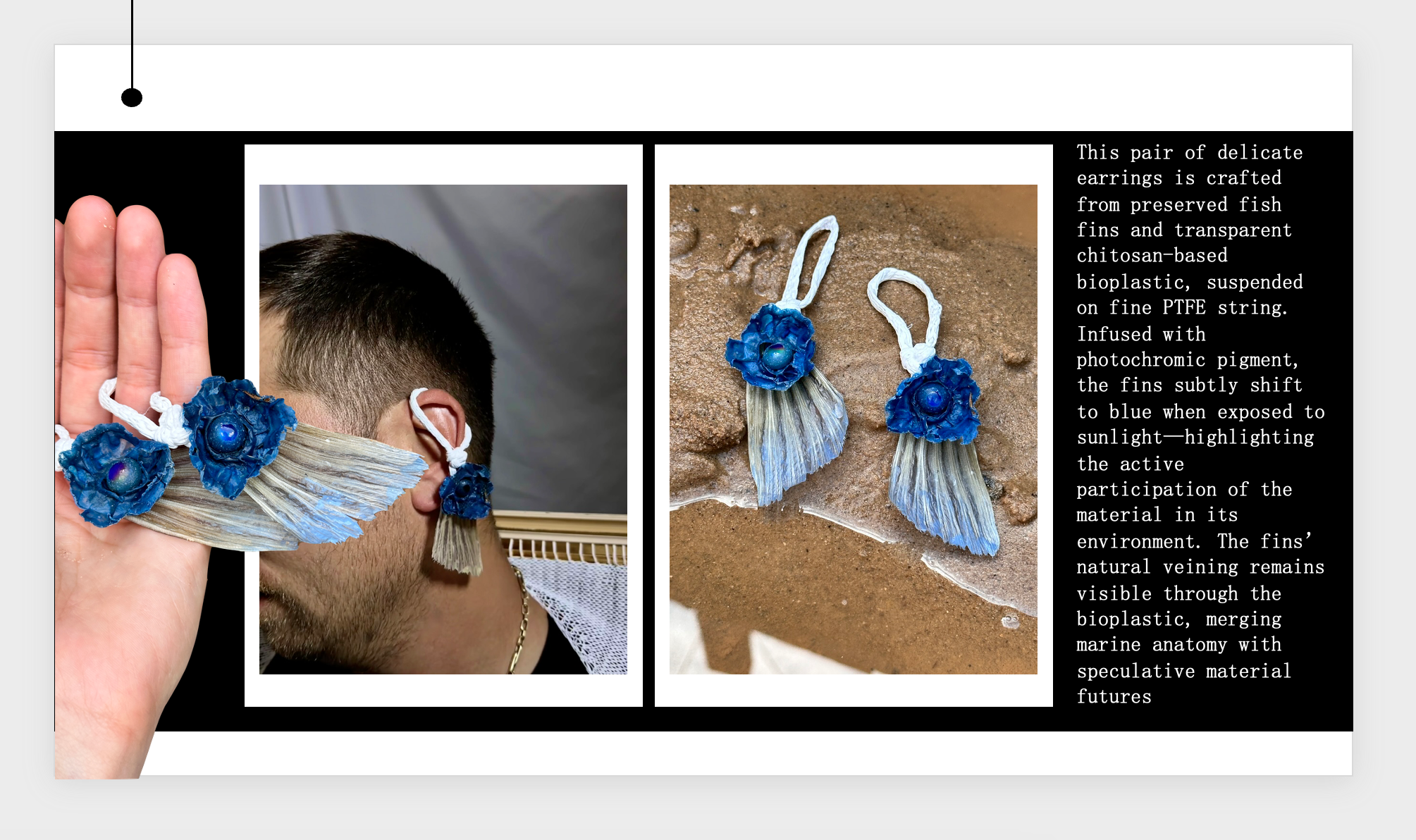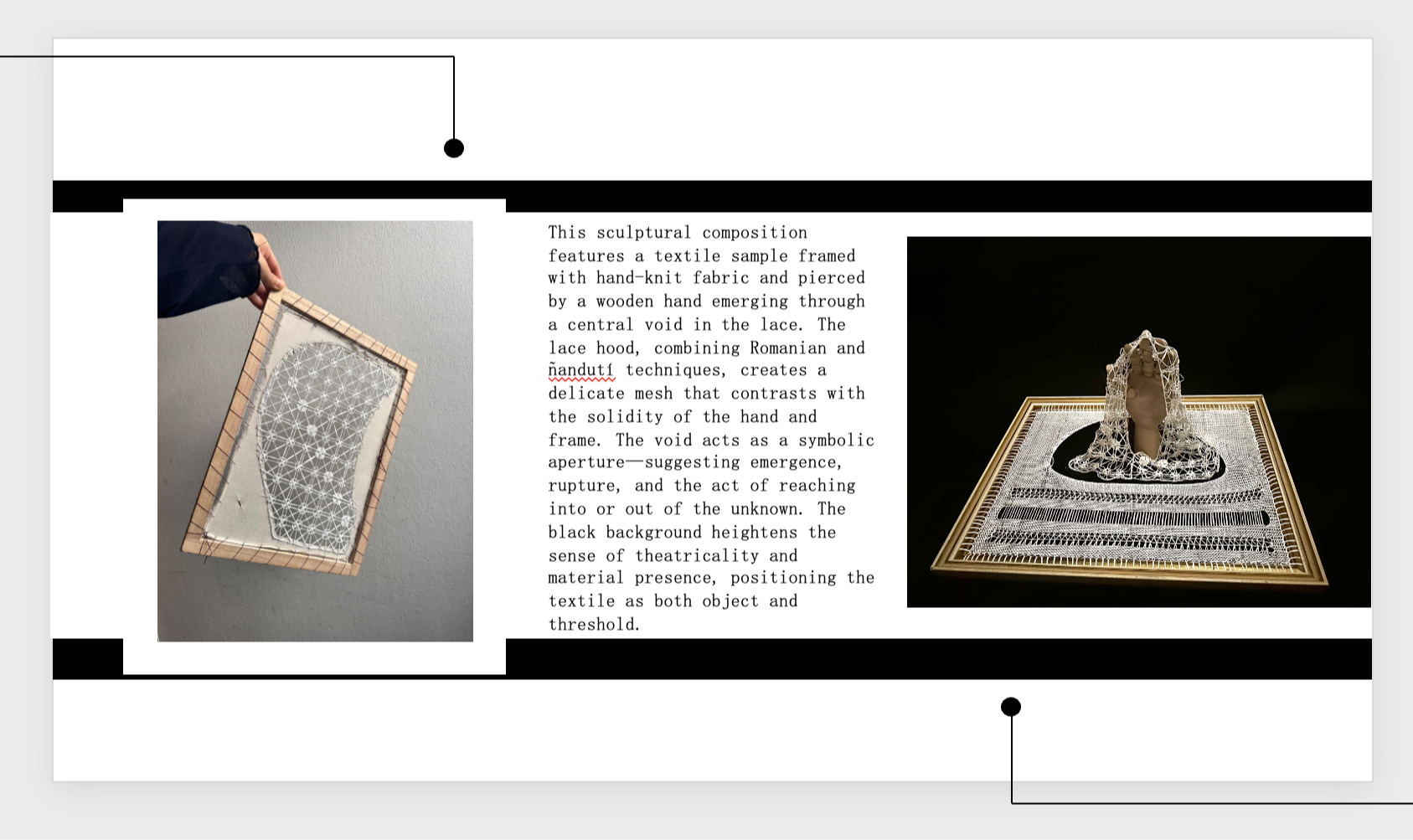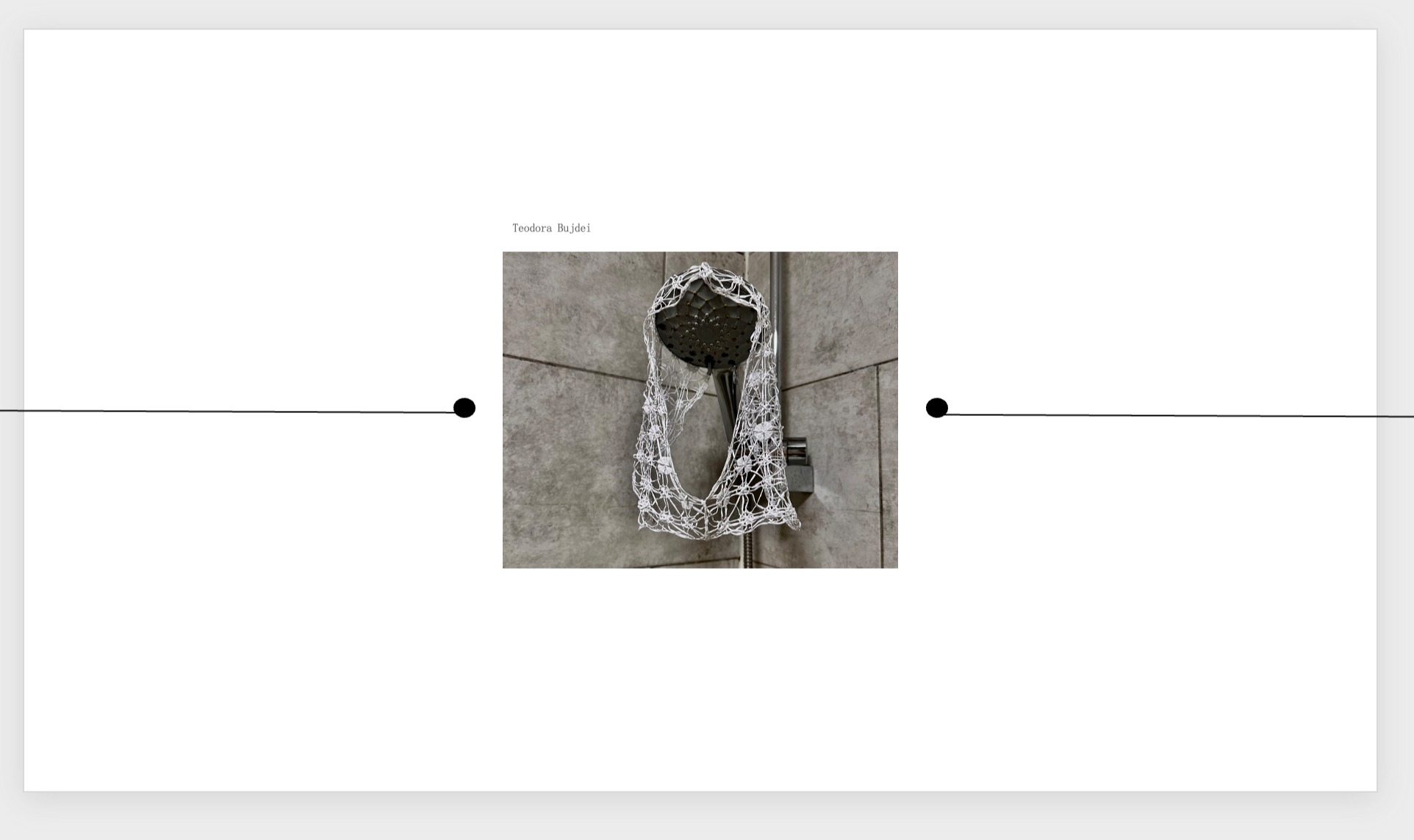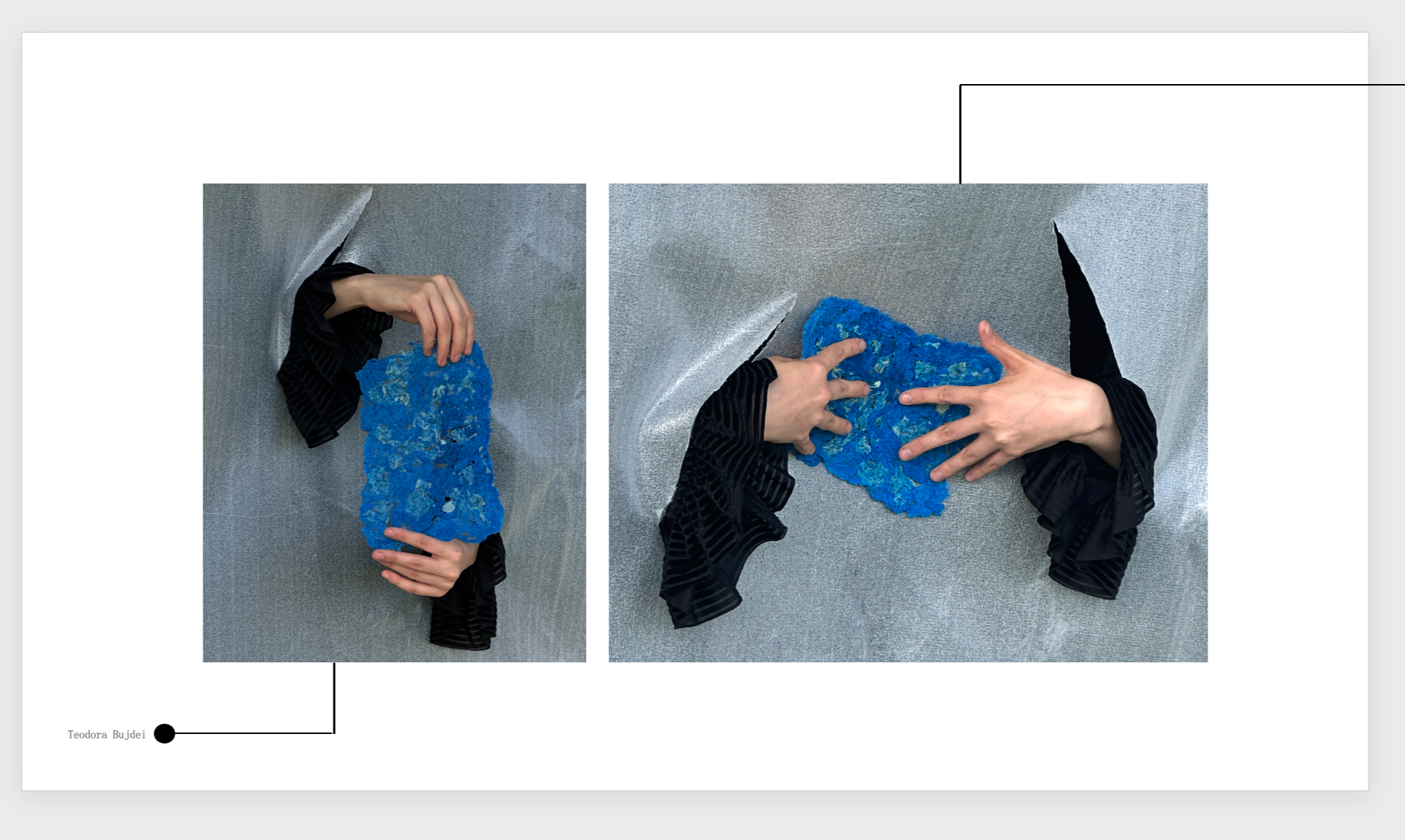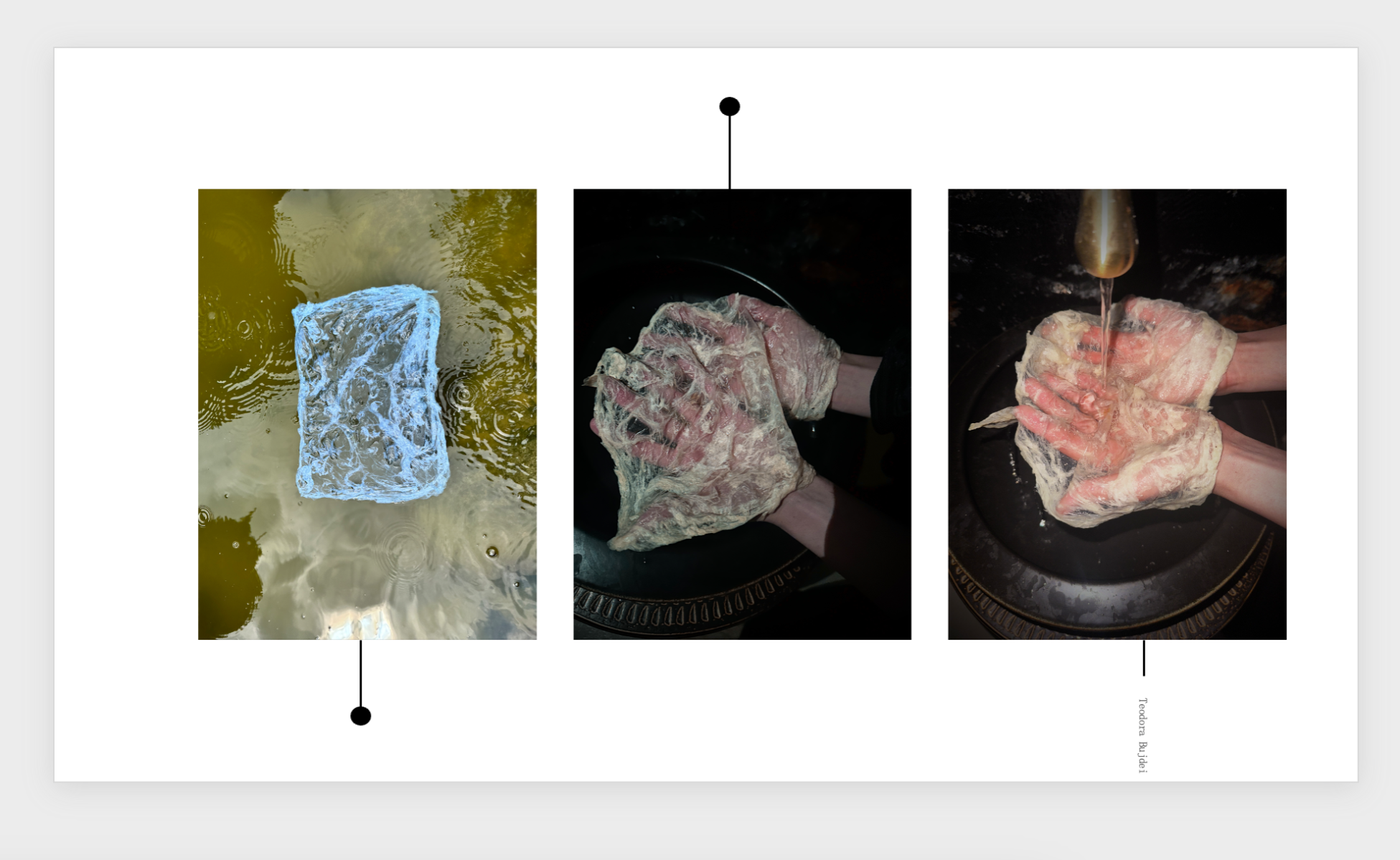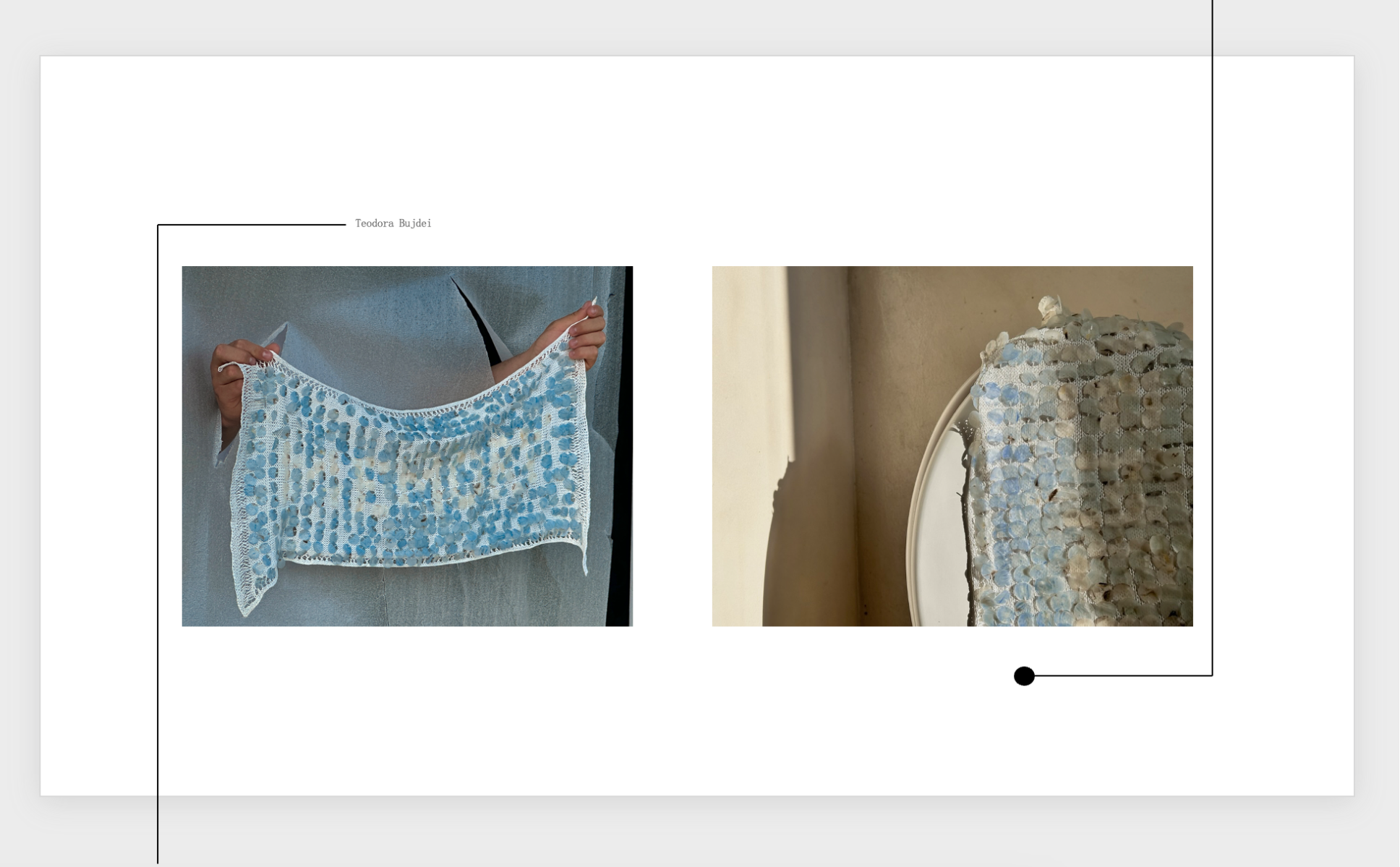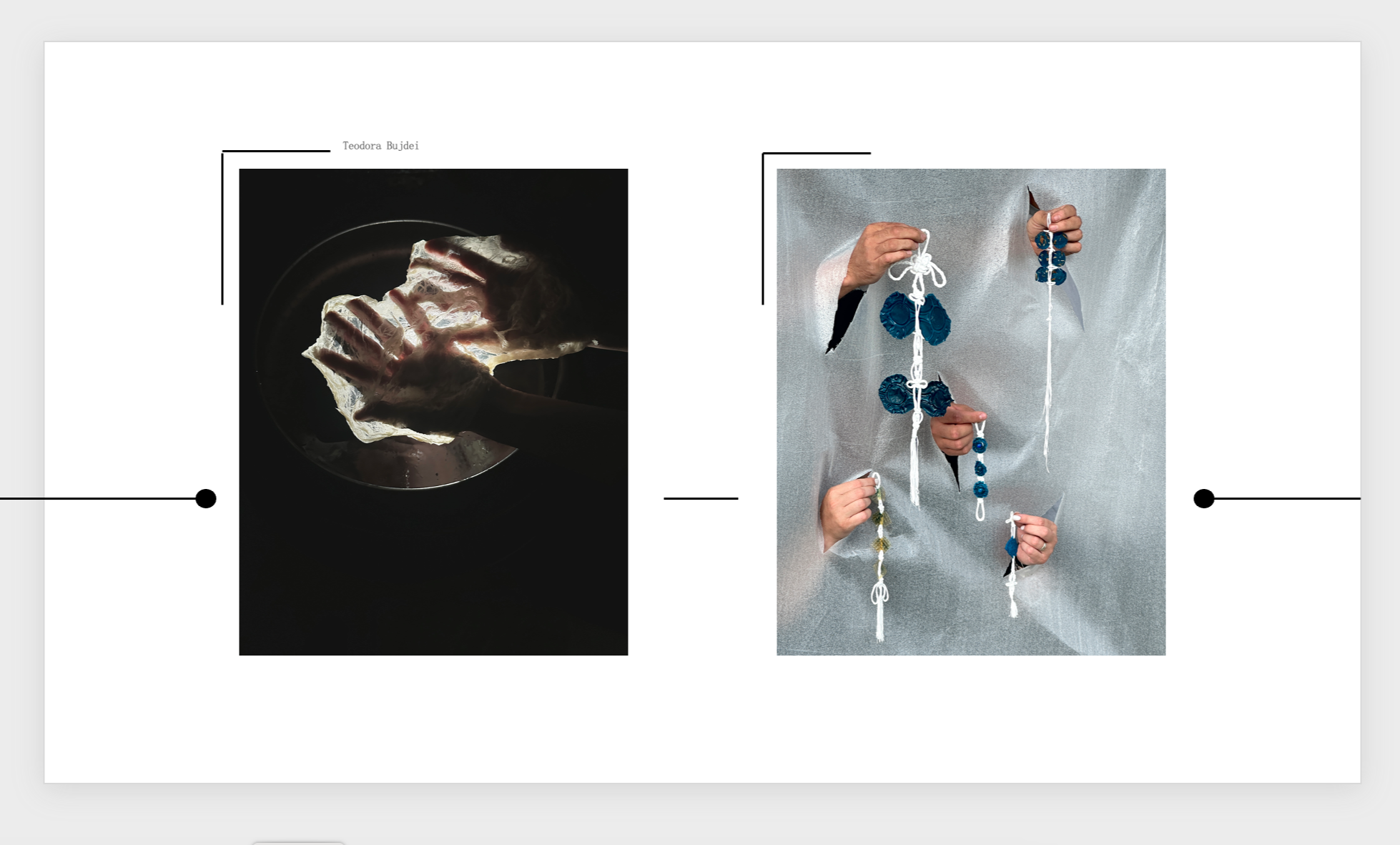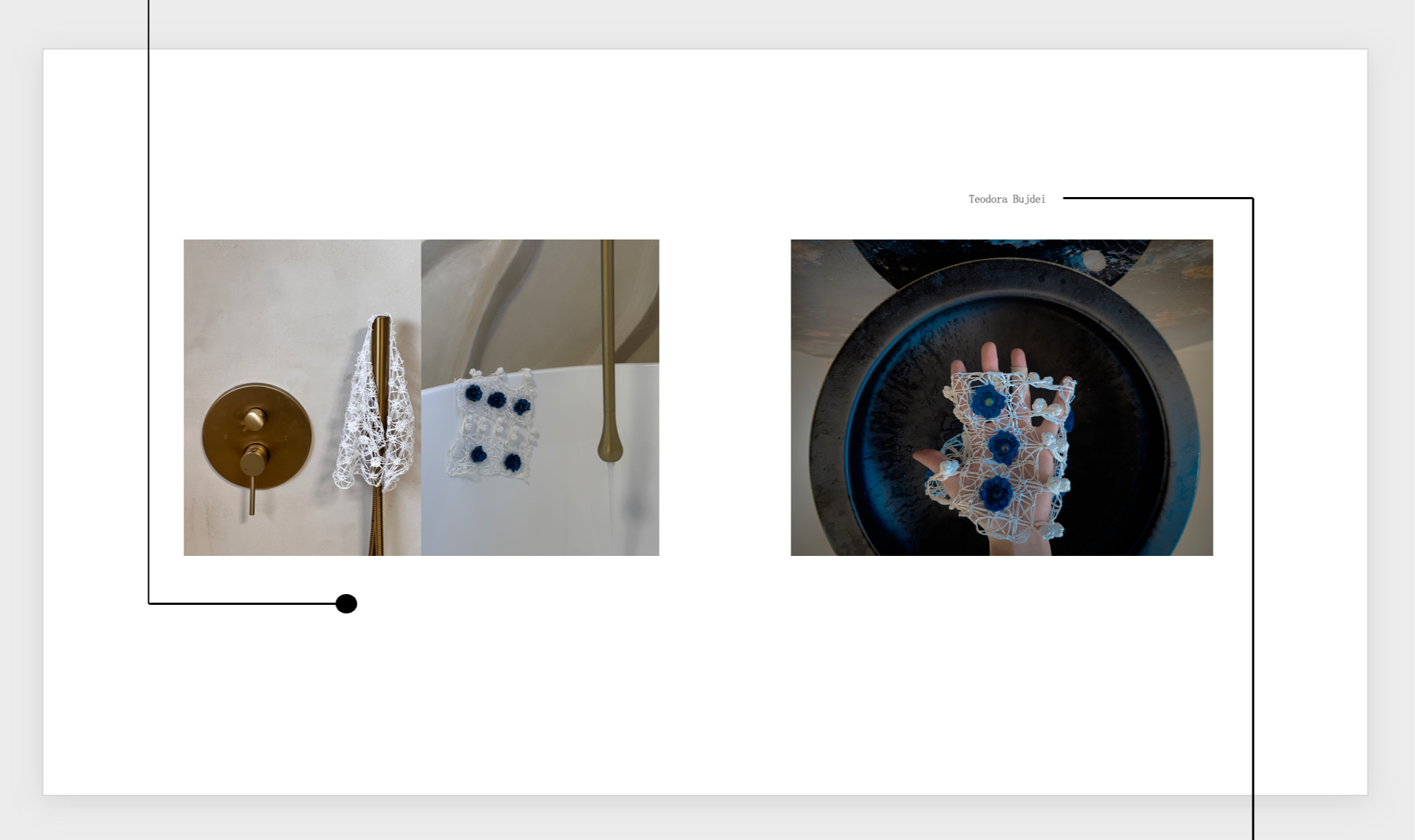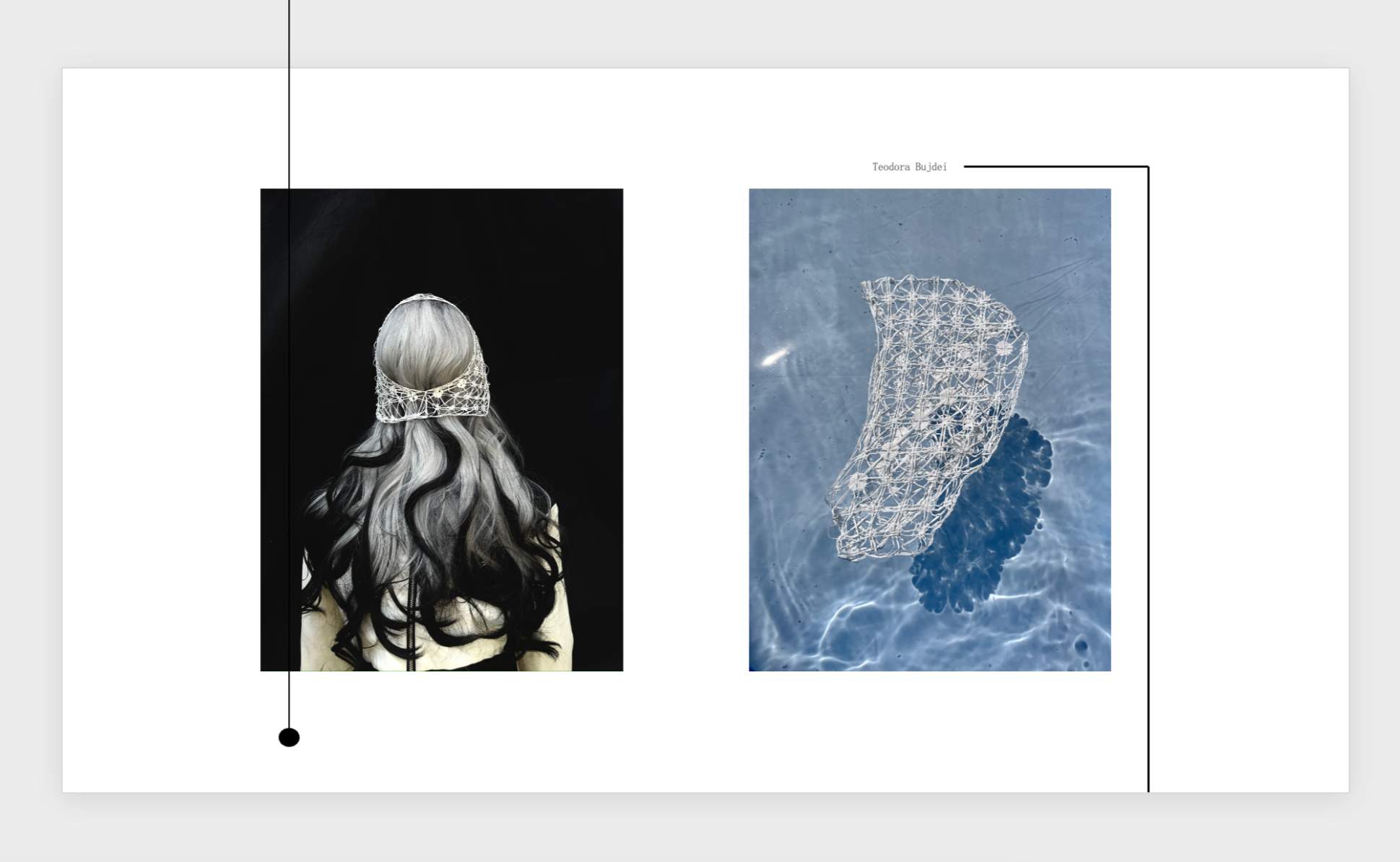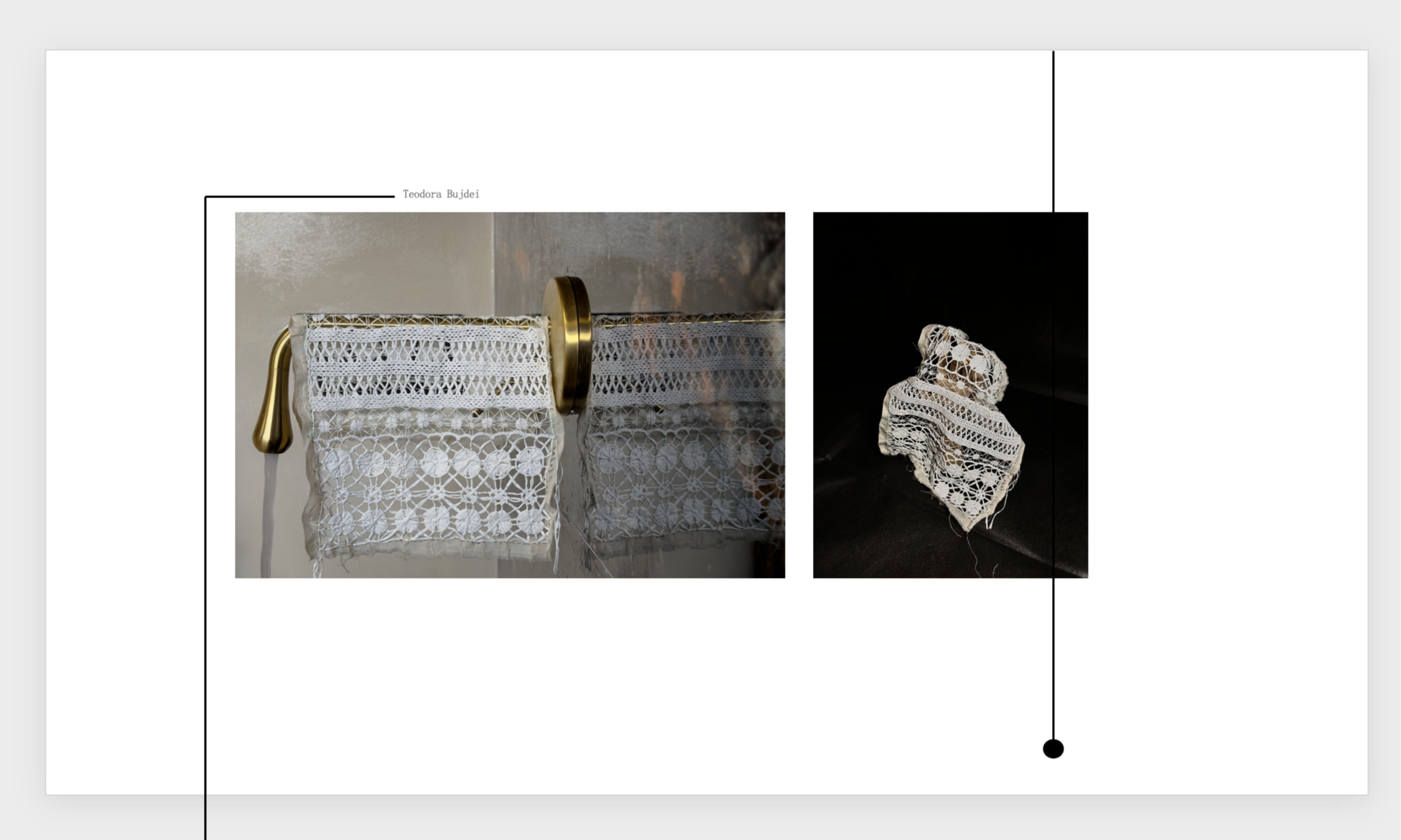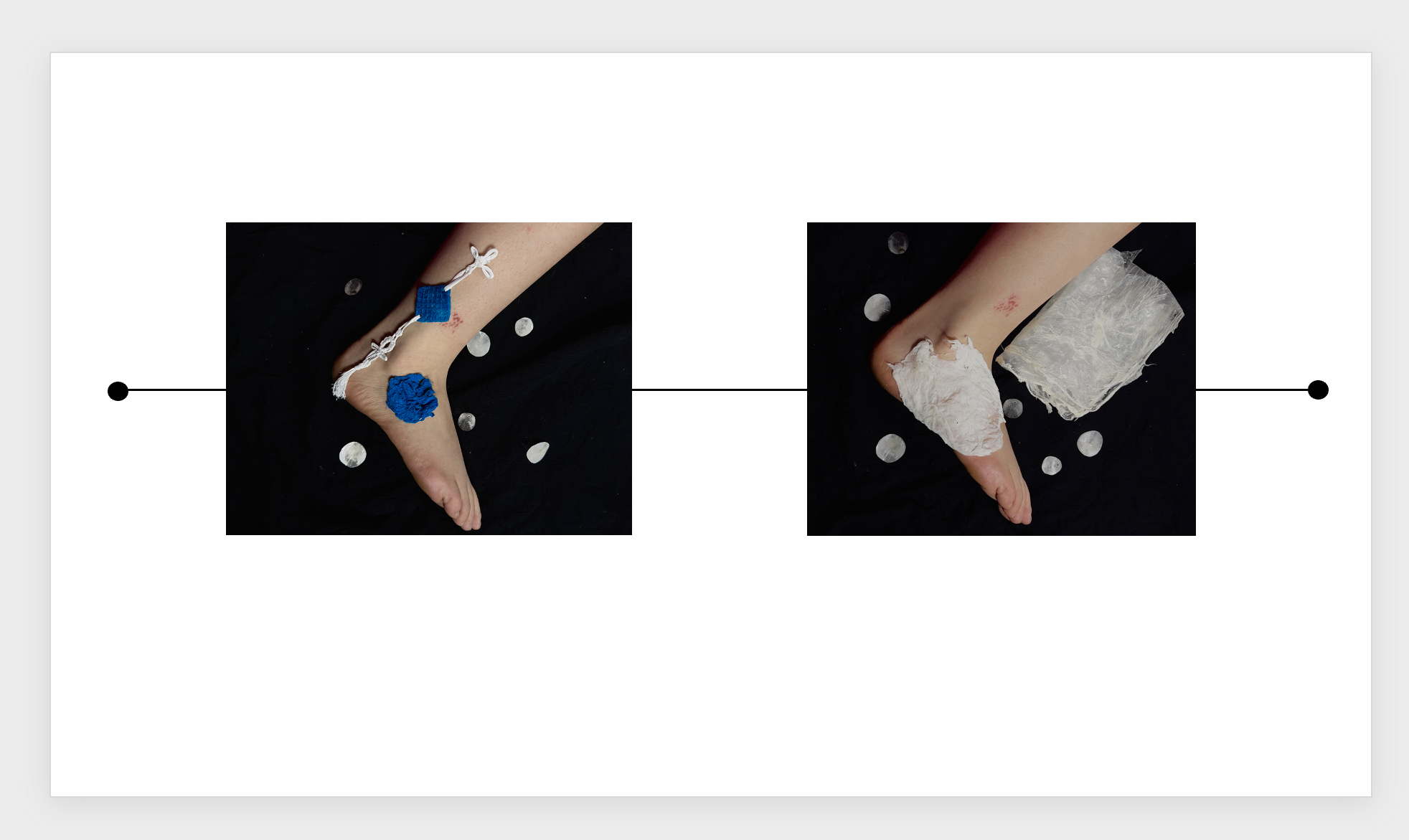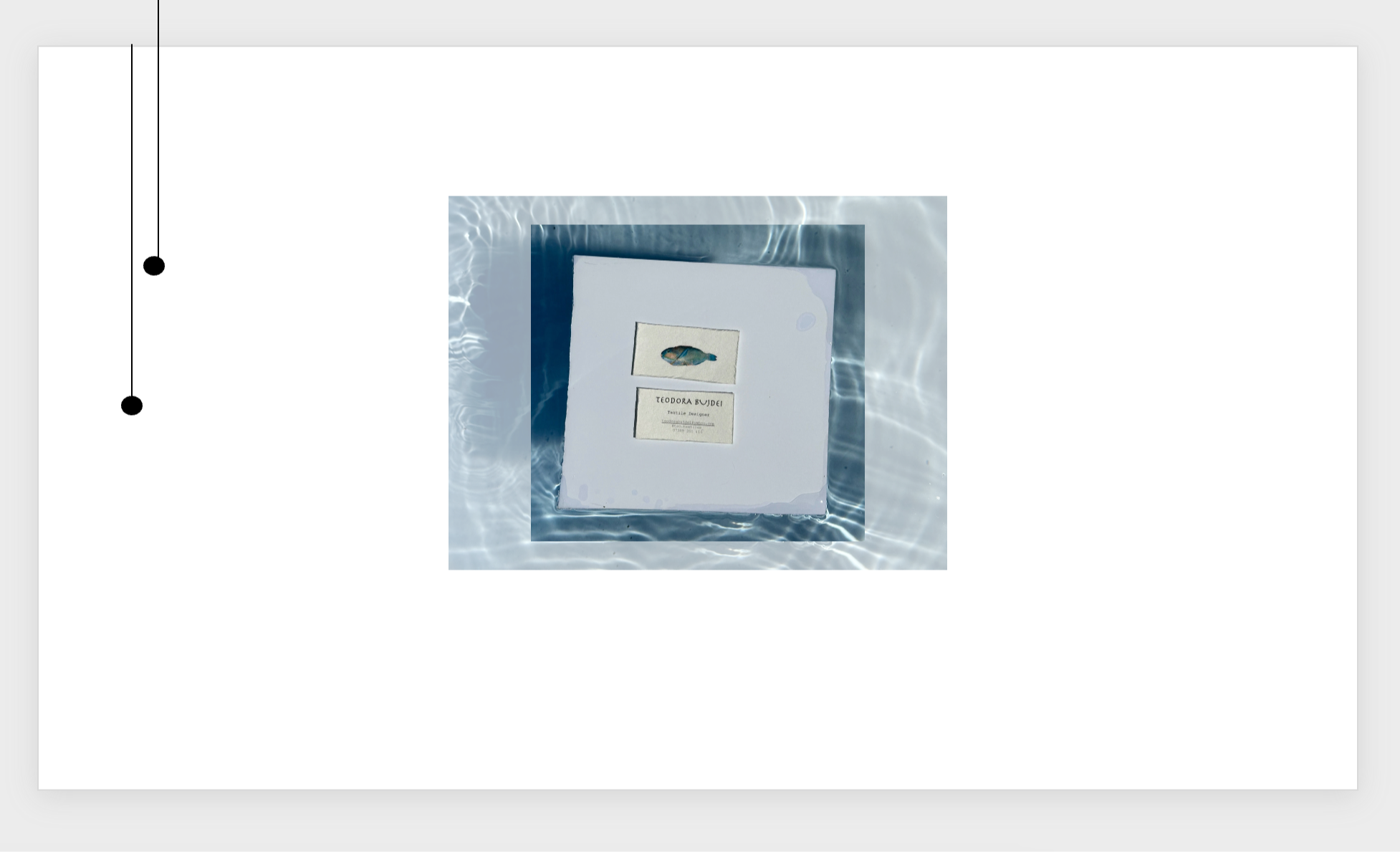Teodora Bujdei
Textile Design BA Hons
Central Saint Martins UAL
Graduates: 2025
Specialisms: Textiles - Knit / Sustainable Fashion/Textiles
My location: London, United Kingdom
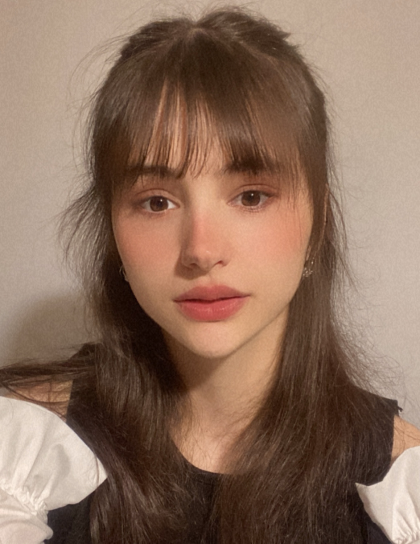

Teodora Bujdei

First Name: Teodora
Last Name: Bujdei
University / College: Central Saint Martins UAL
Course / Program: Textile Design BA Hons
Graduates: 2025
Specialisms: Textiles - Knit / Sustainable Fashion/Textiles
My Location: London, United Kingdom
About
What do we know about (Un)known?
My Final Major Project, "What Do We Know About the (Un)known?", is a conceptual, sustainability-led textile exploration that investigates material agency through a posthumanist lens. Emerging from personal dislocations - solo travel in Korea and the rupture of my bathroom during renovation - the project frames the unknown not as absence, but as a generative condition where matter and meaning co-emerge. Working with fish scales and chitosan-based bioplastic (Korea) and PTFE tape (Bathroom), I transformed each material through casting, spinning, dyeing, pigment activation, and slow textile processes such as archival needlework and Korean knotting. These embodied methods foreground material responsiveness and challenge the subject–object binary. The resulting works position textiles as onto-epistemological sites - spaces where knowing and being arise through making - and invite a multisensory, open-ended encounter with the unknown. Sustainable practice becomes relational and speculative, with materials acting as co-constitutive agents in shaping knowledge and lived experience.
Competitions
